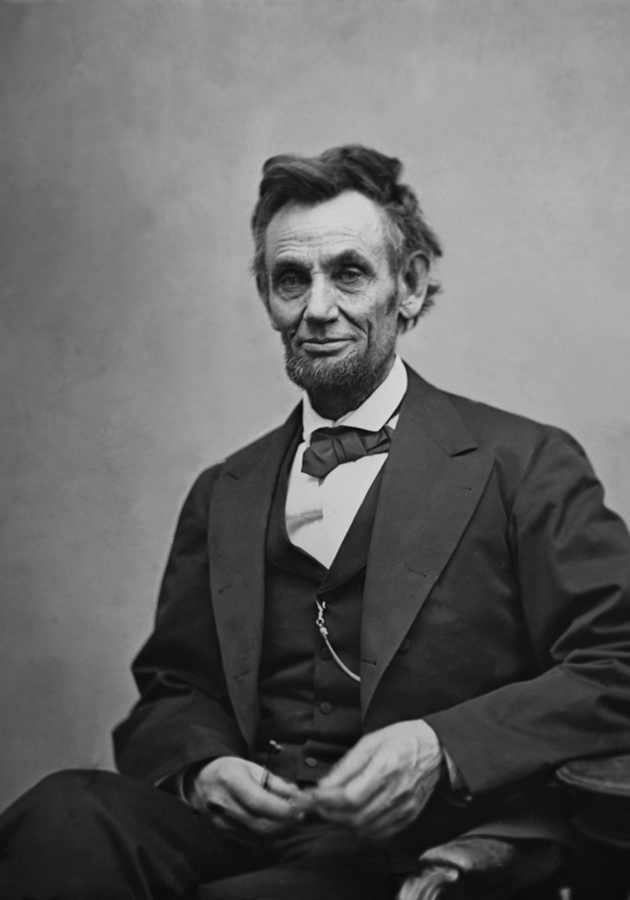Have you been stuck on a problem for ages and don’t know how to solve it? Do you desperately want to fight climate change, but don’t know where to start? The problem might be in how you are approaching the problems, and “Think Like a Freak” could provide the answers. Thinking like a freak means reframing the problem, retraining your brain, and getting that “aha” moment you’ve been waiting for. So, get ready to learn how to think like a freak!
Thinking like a freak
Most of us will always put our personal interests first, and the benefits to society last. While we may pretend to look out for society first when directly asked about it, how we behave in a situation is usually determined by the personal benefit we gain from it. So how can you get people to go beyond their individual interests and work towards a common, greater good?
It’s as easy as changing the way we think about problems. We need to think more productively, creatively, and rationally, especially in today’s ever-evolving, increasingly complex world. Thinking like a freak requires us to approach problems with an unbiased, clear mind, and a new set of expectations. It requires us to step back from and question conventional wisdom.
Just because two events happen at the same time, doesn’t mean there is a causality. And conventional wisdom such as “quitters never win” have been proven wrong by people brave enough to question commonly held beliefs. Thinking like a freak is inspired by an economic approach: it relies on data rather than on ideology, or the so-called “moral compass” to allow you to approach a problem in an unbiased way.
The first step to approaching a problem with a clear mind is to admit that you don’t know everything. This is incredibly difficult, as it often connects individuals to feelings of shame. But blatantly pretending to know everything can have dire effects for entire societies.
The so-called experts of our time – politicians, scientists, investors, meteorologists – don’t know everything. Studies have shown that these experts, when trying to predict the future, have an overall accuracy rate of 47.4%. You’d get better odds by flipping a coin.
And this “not-knowing-but-doing-it-anyway” strategy can have terrible effects in real life. Just consider the Iraq war. It was based on the assumption that Saddam Hussein had weapons of mass destruction and was cooperating with al-Qaeda. The war cost the U.S. $800 billion and 4,500 lives, not to mention the more than 100,000 fatalities on the Iraqi side – and could have probably been prevented if just one leader had simply admitted that they didn’t know for sure if Saddam Hussein posed a threat.
Another reason why so many people are convinced by what they know is because of their moral compass. When we believe in the rightness or wrongness of an issue, the discussion often gets side-tracked from the actual issue. So put away your moral compass to accurately deal with an issue clearly. Only once you admit that you don’t know everything can you start investigating a problem at its true source.
Problem-solving
It might be hard to admit that you don’t have all the answers, so it’s probably even harder to admit that you don’t even know the question. Think about a problem you’d like to see solved, such as the climate crisis. Now, how did you come to define the problem as you see it? It’s likely that the popular press has had a strong influence on how you see this particular issue.
This can often obscure the view of the actual problem, the authors say: “Whatever problem you’re trying to solve, make sure you’re not just attacking the noisy part of the problem that happens to capture your attention. Before spending all your time and resources, it’s incredibly important to properly define the problem—or, better yet, redefine the problem.”
Consider the example of Kobi, a young, skinny, Japanese college student who entered a hot dog eating competition in 2000. Obviously, he wasn’t seen as a threat by the other competitors. But not only did he win the competition, he doubled the previous record by eating 50 hot dogs in just 12 minutes! How had he managed to do this?
Simple: before starting the competition, Kobi had reframed the problem. Most competitors approached the competition by eating the hot dogs in the conventional way. Kobi decided to try a different technique - he separated buns and sausages, allowing him to eat them much more quickly. Kobi’s example doesn’t only show that it can be useful to redefine a problem, but also to think critically about the limits we accept.
Redefining a problem means thinking about what causes it. An interesting example is the following: In the early 1990s, there was a staggering fall in U.S. crime rates. By looking at conventional factors that might have caused this - such as people in prison at the time and a fall in drug use - the drop in crime could still not be explained.
It was only when researchers reframed the problem that the answer became clear: the drop in crime was actually a result of the legalization of abortion in the 1970s. There were simply fewer children who had grown up in the circumstances that lead to crime, as abortion had become an option for unwanted pregnancies.
Think like a child
So, how can you succinctly approach and define a problem? The answer is: to think like a freak, you have to think like a child. Children’s thinking is defined by a relentless curiosity and relative impartiality. When faced with new problems, children keep an open mind and approach the problem from different angles.
To do this, think small, rather than big. The big problems have been around for such a long time because they are highly complex and difficult to solve. So instead, focus on the small ones. These are questions that have not likely been asked before, and will provide excellent grounds for learning. You are also more likely to instigate change on a small issue. “Thinking big” on the other hand, involves imprecision and guesswork.
Thinking like a child also involves not being scared of the obvious. If we go back to the abortion example, the U.S. recorded about 1.6 million abortions a year after the law had passed. Most people, reading this number, would immediately jump to the political ramifications, But the more obvious answer would be to think, “Wow, such a great increase must have had an effect on something!”
Finally, thinking like a freak also means having fun! Children are unstoppable in their pursuit of fun. And looking serious doesn’t necessarily mean you’re good at what you do, so enjoy what you’re doing! The authors used this approach in an attempt to raise money for charity. Since so many people enjoy gambling anyways, they created an online spinning game where winnings could be donated to a favorite charity. It proved to be much more effective than using guilt or persuasion.
Finding the right incentives
People respond to incentives, so it’s important to find out what these are. Successful problem-solving includes knowing what motivates the individual players. This can range from financial to social, moral, and legal incentives and will have different effects on different people.
To find out what motivates another person, you must step into their minds and try to understand them. It’s not as easy as simply asking – because often we say one thing and do another. This, in economics, is known as the declared preferences and the revealed preferences, and to truly understand what incentives would work on another person, you should watch the gap between the two.
Studies can also give an idea of how incentives work. Psychologist Robert Cialdini, tried to find out what would motivate people to use less electricity at home. They ranked their incentives as such: 1. Protecting the environment, 2. Benefiting society, 3. Saving money, and 4. Other people are doing it. When following up on this, it became clear that most people would conserve energy because others did so as well.
Contrary to what people might say, herd mentality seems to be a strong motivator for many. When designing an incentive scheme, you can make use of this knowledge by highlighting how others are doing the same thing.
Knowing about incentives will also help in identifying liars. Take the example of King Solomon from the Bible. There is a story where two women come to him and the first woman says that the second one has stolen her baby because hers died. The second woman claims it is her baby. King Solomon then says that he will just cut the baby in half, since none will let the other have it.
The first woman begs for the life of the child, saying the second woman can have it, while the second woman says nothing. To which King Solomon gives the baby to the first woman, as only a real mother could be so distressed at the thought of the death of the child - only she had the right incentive.
Persuading others
It is always hard to persuade others of your position. No matter how well-founded your argument may be, people will always be more likely to accept evidence and arguments that confirm what they already know.
Take climate change, for example. Even though most climate scientists are convinced of the future dire effects of the current climate emergency, the subject still sparks a great amount of controversy. Interestingly, it is not lay people who are likely to disagree with the experts, but rather those who have the highest scientific literacy and numerical ability. Since they are knowledgeable, they are more likely to disagree, as their education has led them to think they know everything.
So, if you want to build an argument that convinces others, here’s what you have to do: admit that you don’t know everything. This will make you more believable when you actually claim to know something. Don’t pretend your argument is perfect. Also, acknowledge the strength of the other person’s argument. This makes your opponent more likely to engage with what you have to say.
It might seem like a no-brainer, but don’t insult the other person, no matter how strongly you feel on the subject. A study on German school teachers - who are more likely to retire early than those in other professions - linked their retirement to poor mental health. It also found out that this poor mental health was caused by verbal insults from the students.
Finally, to get the other person to really listen to you, frame your argument as a story. Stories are much easier to engage with and much more remembered than factual arguments.
Final Notes
Thinking like a freak requires you to completely reframe your mind. Get rid of conventional wisdom and your moral compass and focus on the actual problem. What causes it? What are the motivational factors? Start small and have fun on the way!
“Think Like a Freak” is a bestselling book and is filled to the brim with interesting examples and fun stories. If you want to retrain your brain, read it!
12min Tip
Find a small problem you want to solve and then try and think about it unconventionally – what causes the problem, what are the incentives involved?





























